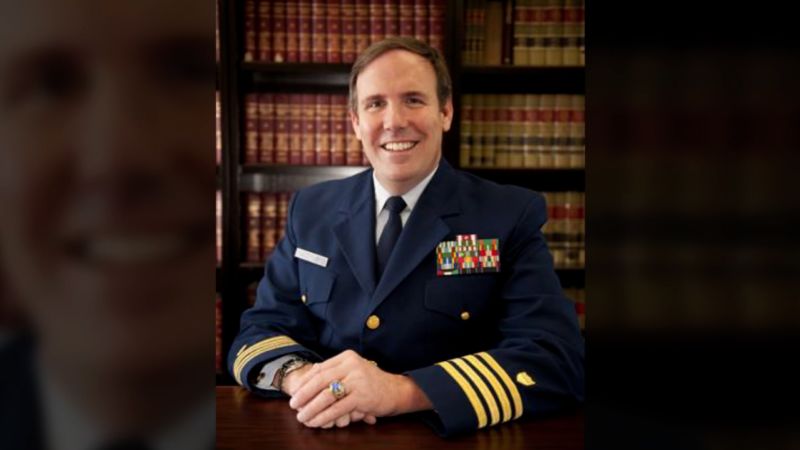A retired US Coast Guard captain stepped down as president of a college in Massachusetts on Tuesday after CNN revealed that he had been accused of sexual misconduct involving several students he taught at the prestigious Coast Guard Academy a decade ago.
Glenn Sulmasy, who had been president of Nichols College since 2021, resigned amid an ongoing investigation by the college, which was prompted by CNN’s report. That story detailed how Coast Guard attorneys in 2016 recommended that Sulmasy be prosecuted in a military court-martial for conduct unbecoming an officer and willful dereliction of duty even though he had retired from the service months earlier. The proposed charges stemmed from hundreds of sexually suggestive texts he exchanged with an academy student, according to a memo obtained by CNN.
Coast Guard leaders rejected the prosecution recommendation despite attorneys warning that failing to do something would be viewed as the academy “sweeping the case under the rug.” Sulmasy went on to have a successful career in academia, first at Bryant University in Rhode Island, and then at Nichols.
After its first report on Sulmasy, CNN learned of a separate 2016 Coast Guard performance evaluation which documented other allegations against him, including that he used his government email system to engage in “flirtatious” and “inappropriate” communications with another former cadet in 2013, and to “receive and view sexually graphic and inappropriate” photos. The performance evaluation also stated that Sulmasy made “sexist” and “inappropriate” comments to subordinates and concluded he “violated the Coast Guard’s sexual harassment and civil rights policies.”
Additionally, Melissa McCafferty, a 2011 academy graduate, told CNN that Sulmasy verbally harassed her and texted her that he would only write her a recommendation letter for law school if she sent him photographs of herself, telling her he had always loved her foot tattoo.
“In light of these reports and facts uncovered to date during our ongoing investigation, and their impact on President Sulmasy’s ability to lead Nichols College, the Board strongly believes the institution’s best interest is to pursue new leadership,” the Nichols College Board of Trustees said in a statement Tuesday.
Sulmasy’s attorney, Jeffrey Robbins, did not immediately respond to a request for comment regarding the resignation, but he previously characterized the prosecution memo as “ridiculous on its face” and called McCafferty’s allegations “false.” Robbins also said that “the intimate texts in question” with the student were characterized by prosecutors as “consensual in nature” and added that the proposed court martial had been “rightfully rejected by the adults within the legal wing of the Coast Guard.”
Robbins did not respond to questions about the performance evaluation. In a written response to the report in 2016, Sulmasy protested the recommended rank reduction and argued that the evaluation report should not be submitted because he had already retired. He also argued that his rank upon retirement could not be changed under US law and Coast Guard practice.
After CNN’s report on Sulmasy, an administrator with the Coast Guard Academy, Eva Van Camp, wrote in an email to the academy that allegations about Sulmasy had been referred to the Coast Guard Investigative Service and that he “will not be allowed aboard the Coast Guard Academy campus.”
The case against Sulmasy was another instance of the Coast Guard internally expressing concern about alleged sexual misconduct but ultimately not holding its service members accountable.
The disclosures about Sulmasy followed CNN’s report on a secret investigation into rapes and sexual assaults at the Coast Guard Academy. That investigation, dubbed Operation Fouled Anchor, found that crimes were ignored, and in some instances, covered up. A US Senate subcommittee has launched a formal inquiry into the handling of that investigation.
Read the full article here



